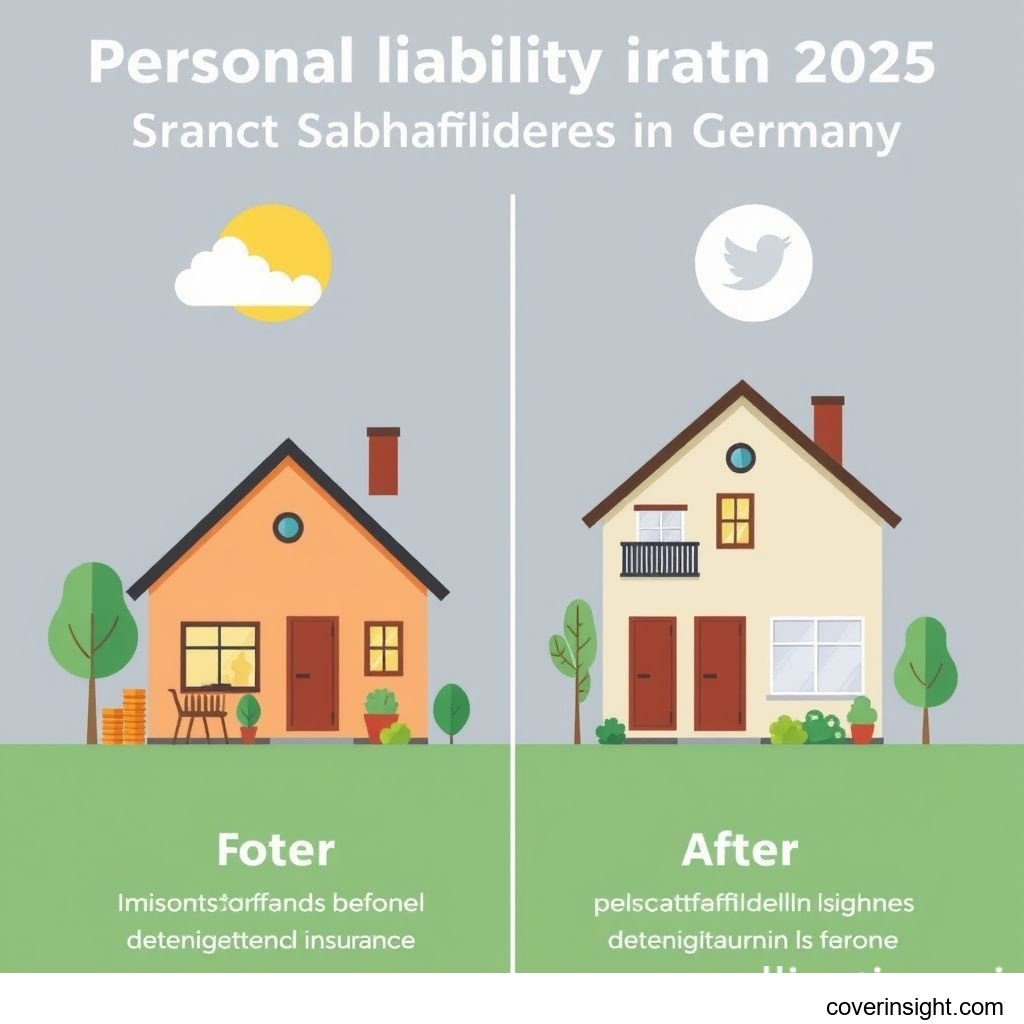Introduction
As we look towards 2025, planning your travels from Germany involves more than just booking flights and accommodations. A crucial, yet often overlooked, step is to compare travel insurance options to ensure you're adequately protected. Whether it's a spontaneous city trip or a meticulously planned world tour, unforeseen circumstances can quickly turn a dream vacation into a financial nightmare. From sudden illness abroad to lost luggage, or even the need to cancel a trip last minute, having the right Reiseversicherung Vergleich 2025 in place offers peace of mind and safeguards your finances. It's about being prepared, "auf Nummer sicher gehen," so you can truly enjoy your adventures without a gnagendes Gefühl der Unsicherheit.
Coverage Details
Understanding what's covered – and what isn't – is paramount when you compare travel insurance. This isn't just a formality; it's the core of your protection.
What’s Included
When evaluating policies for 2025, most comprehensive travel insurance plans typically include several key components:
-
Medical Emergency Coverage (Auslandskrankenversicherung): This is arguably the most vital. It covers medical treatments, hospital stays, and even emergency dental work abroad. Crucially, it often includes medically necessary repatriation back to Germany. According to the GDV (German Insurance Association), the cost of a medical repatriation from outside Europe can easily exceed €50,000, illustrating why this coverage is indispensable.
-
Trip Cancellation Insurance (Reiserücktrittsversicherung): Reimburses non-refundable expenses if you have to cancel your trip due to covered reasons like severe illness, accident, death in the family, or even job loss.
-
Trip Interruption Insurance (Reiseabbruchversicherung): Provides reimbursement for unused portions of your trip and extra costs incurred if your trip is cut short for covered reasons.
-
Baggage Insurance (Reisegepäckversicherung): Covers loss, theft, or damage to your luggage and personal belongings.
-
Travel Legal Assistance (Rechtsschutzversicherung auf Reisen): Offers support for legal disputes that may arise during your travels.
-
Travel Accident Insurance (Reiseunfallversicherung): Provides a lump sum payment in case of accidental death or permanent disability during the trip.
Common Exclusions
While comprehensive, no insurance covers everything. When you compare travel insurance, pay close attention to the fine print regarding exclusions:
-
Pre-existing Medical Conditions: Often, unmanaged or newly developed pre-existing conditions are not covered unless specifically declared and accepted by the insurer, usually at an additional premium.
-
High-Risk Activities: Activities like skydiving, bungee jumping, or professional sports often require special add-ons or are excluded entirely.
-
Self-inflicted Injury or Alcohol/Drug Use: Incidents occurring under the influence of alcohol or non-prescribed drugs are typically excluded.
-
Acts of War or Terrorism: While some policies have limited coverage, large-scale conflicts or declared acts of war are generally excluded.
-
Negligence: If damage or loss occurs due to your own gross negligence, the claim might be denied.
-
** pandemics and Epidemics:** Following recent global events, many standard policies now explicitly exclude cancellations or medical costs related to new widespread pandemics, or offer limited coverage only through specific endorsements.
Cost Analysis
The cost to compare travel insurance varies significantly, making a detailed look at pricing factors and saving tips essential.
Price Factors
Several elements come into play when calculating your travel insurance premium:
-
Duration of Travel: Longer trips naturally cost more to insure than short ones.
-
Destination: Traveling to countries with high medical costs (e.g., USA, Canada) will result in higher premiums for medical coverage.
-
Age of Traveler: Older travelers generally face higher premiums due to increased health risks.
-
Type of Coverage: A basic medical policy is cheaper than a comprehensive package including cancellation, baggage, and legal assistance.
-
Number of Travelers: Individual policies are typically more expensive per person than family plans.
-
Deductibles (Selbstbehalt): Choosing a higher deductible often lowers your upfront premium, but means you pay more out-of-pocket if you make a claim.
-
Pre-existing Conditions: Declaring these can increase the premium or lead to specific exclusions.
Saving Tips
Even when striving for optimal coverage, there are ways to save a few euros, because "Kleinvieh macht auch Mist":
-
Annual Policies (Jahresreiseversicherung): If you travel frequently (more than once or twice a year), an annual multi-trip policy is almost always more cost-effective than buying single-trip policies for each journey.
-
Family Plans: Insuring all family members under one policy is usually cheaper than individual plans.
-
Compare Providers: Don't just stick to your bank or existing insurer. Use online comparison portals to get quotes from multiple providers. A good starting point for deeper understanding is exploring various [Insurance Resources Global].
-
Buy Early: While not always affecting price, buying early avoids last-minute rushes and ensures you're covered for cancellation reasons well in advance.
-
Understand Your Needs: Avoid paying for coverage you don't need. If your credit card offers basic travel benefits, factor that in.
-
Check Existing Policies: You might already have some coverage through your health insurance for EU travel (EHIC) or credit card benefits. However, be aware that the European Health Insurance Card (EHIC) only covers medically necessary treatment under the same conditions as locals, often leaving significant gaps for repatriation or private care. For comprehensive understanding of local regulations, you might check [DE Insurance Home].
FAQs
How much does compare travel insurance cost?
The cost varies widely, from around €10-€30 for a basic single-trip policy for a young individual for a short European trip, to several hundred euros for a comprehensive annual family policy covering worldwide travel. Factors like age, destination, duration, and chosen coverage significantly influence the price.
What affects premiums?
Key factors include the traveler's age, the duration and destination of the trip, the level of coverage (e.g., medical only vs. comprehensive package), the inclusion of high-risk activities, and any pre-existing medical conditions.
Is it mandatory?
No, travel insurance is generally not mandatory for German citizens traveling abroad, nor is it legally required to enter most countries. However, certain visa requirements (e.g., for some long-stay visas or specific destinations) might mandate proof of travel health insurance. Even if not mandatory, it is highly recommended to protect against unforeseen expenses. The BaFin - Federal Financial Supervisory Authority oversees the German insurance market, ensuring providers meet certain standards, but they don't mandate purchasing specific types of insurance for travel.
How to choose?
First, assess your personal needs: where are you going, for how long, what activities will you do, and what's your health status? Then, compare different policies based on coverage limits, exclusions, deductibles, and customer reviews. Don't just look at the price; the cheapest option might not offer adequate protection. A German family experienced this firsthand when their child developed appendicitis in Thailand. Their comprehensive travel insurance covered the entire €30,000 hospital bill and subsequent medical flight back to Germany, saving them from immense financial strain. This real-world example underscores the value of choosing wisely.
Consequences of no coverage?
Without travel insurance, you bear all financial risks yourself. This could mean paying tens of thousands of euros for emergency medical treatment or repatriation, losing non-refundable trip costs if you have to cancel, or replacing lost luggage out of pocket. It can lead to severe financial hardship, especially in cases of serious illness or accident abroad.
Author Insight & Experience
As someone living in DE and having traveled extensively, I've seen firsthand how quickly unexpected events can derail a trip and become a major financial burden. Based on my experience, meticulously comparing travel insurance isn't just smart; it's a non-negotiable part of responsible travel planning. While no one wants to think about emergencies, knowing you're financially protected allows you to fully immerse yourself in the adventure, confident that if something goes awry, you won't be left high and dry. The small investment in a good policy truly pays dividends in peace of mind.








Comments